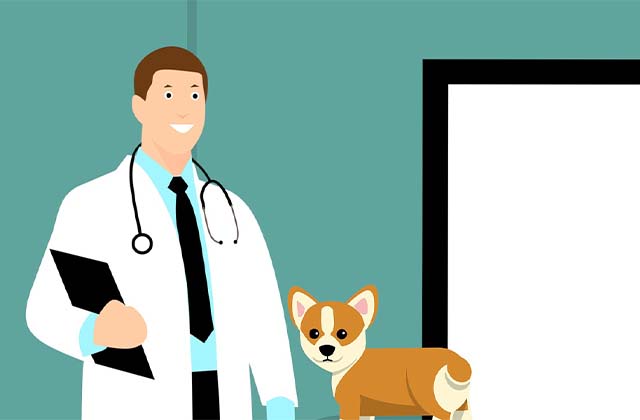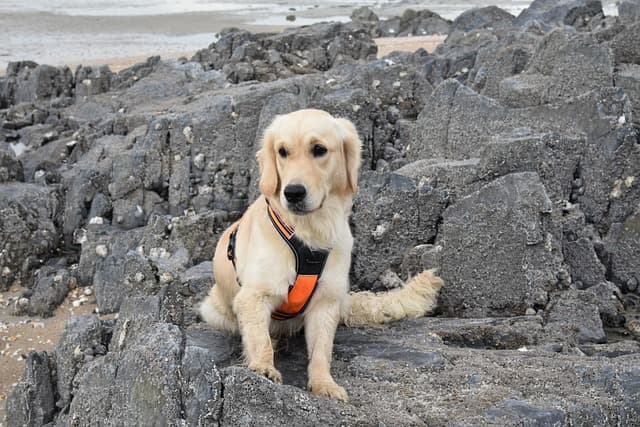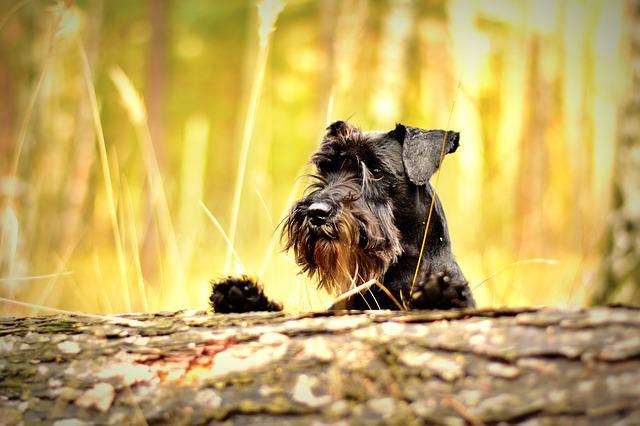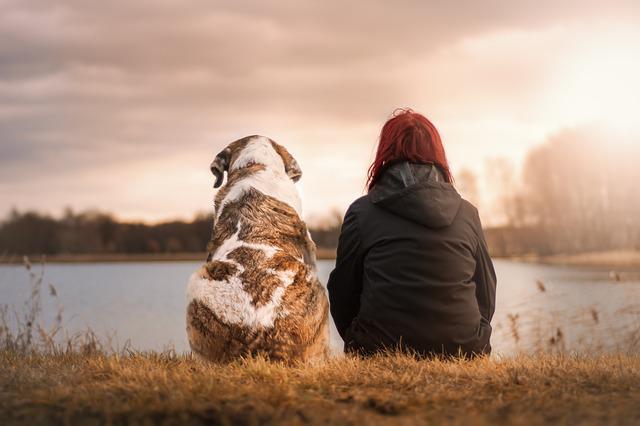
My Dog Is Scared Of Me: Why And What Should I Do
It’s not only a terrible feeling when my dog is scared of me; it also makes it harder to train, care for, and feed the dog.
Fortunately, there are techniques that owners of nervous dogs can take to aid in gaining (or regaining) a dog’s trust.
Table of Contents
Ordinary Dog Phobia
When people say “my dog is afraid of me”, they probably see some behaviors or signs listed above, and naturally think that dogs are afraid of them. However, this may not always be the case, because dogs are afraid for many reasons. Just like human beings, dogs have all kinds of phobias in their lives.
One of the most common dog phobias is loud noise – whether it’s fireworks, thunderstorms, or even vacuum cleaners, you may find that your dog will disperse at the first loud noise.
Many dogs also have separation anxiety and fear of being separated from their owners. If you find that your dog shows fear symptoms when you are about to leave, this is a good clue that the dog is not afraid of you, but afraid to leave you.
Another common phobia of dogs is driving. Although many dogs like them very much, some dogs will have negative associations, especially after they are taken to an unpleasant destination, such as the veterinary office.
Finally, some dogs may even be afraid of children, just because children sometimes don’t know how to properly interact with dogs, and may have hurt them in the past.
Why Is My Dog Afraid Of Me?
There may be many reasons why dogs are afraid of you, but not all of them are related to you personally.
Here are some common reasons why dogs are afraid of you:
Your Dog Had A Bad Experience With You
According to Dr. Wooten, the most common reason why dogs are afraid of you is that they have had negative, terrible, or possibly painful experiences with you in the past, even if you don’t want this experience to happen. “These experiences may include accidents (such as accidentally stepping on a dog’s tail or paw), beating a dog, screaming or shouting at a dog, or negative punishment,” Dr. Wuteng told the dodo.
Although some people may train their dogs by scolding, no one has ever thought that this is the best way. Your dog doesn’t realize that you just want to teach him to distinguish between right and wrong, and he may be afraid of you in the process.
This is why active intensive training (that is, rewarding your puppy with positive experience and food) is a better choice.
“If people are too anxious, nervous, or afraid, dogs will also be afraid,” Dr. Wuteng said.
Your Dog Former Owner Was Terrible
Allen said that some terrible dogs become like this because their previous owners ignored or abused them. “For these poor animals, their daily environment is chaotic, violent, full of anxiety, and competing for dominance with other animals,” Allen told dodo.
Your Dog Was Adopted From A Shelter
“Before they come to live with you, if they are in a terrible place, such as a shelter or the home of other aggressive dogs, they will also be afraid of you,” Dr. Wuteng said.
Although some shelter dogs are carefree from the beginning, some dogs may need more time to adapt to a new life. Think about how uncomfortable it is to go from one place to another so quickly (with people you don’t know yet).
If you adopt your dog and begin to notice the behavior of fear, just be gentle and patient. Allen said, “within a few weeks, their shy nature will grow into a never-ending lovely character, but more importantly, they will talk to you and thank you for your understanding and cultivation.” “Like humans, dogs need time to heal physical and psychological wounds.”
Although the terrible experience your dog has experienced can be anything from a shock to a painful encounter, it really doesn’t matter what happened. Whether it’s you, someone who looks like you, or someone who has experienced it in a completely different environment, it’s important that your dog is frightened at some point in his life. “This experience leads to a terrible human-related memory in dogs, which is to protect dogs from more negative experiences from an evolutionary point of view,” Dr. Wuteng said. “This terrible memory is usually unreasonable for humans, but it makes perfect sense for dogs.”
What Should I Do If My Dog Is Scared Of Me?
Show Patient
Every dog is different. Just like human beings, every dog will adapt to the environment and learn at its own pace. This may take days, weeks, or months of continuous effort and training, depending on the dog’s personality and the reasons for their fear.
Most dogs learn to trust the time and effort of their owners and other humans. But in this adaptation process, you must be patient and never force, force, or lose your temper with the dog, because doing so will only make things worse.
Let The Dog Go
Having their own space and time, less attention, and less interaction, is where some dogs need to become comfortable.
Just like a person who is too strong will make the dog afraid, you are too strong for your dog will also make the dog afraid. Sometimes, the best way to gain the trust of dogs is to let them decide when they want to interact with you. Let frightened dogs attract your attention, rather than you go to them.
Follow Predictable And Reliable Schedules
When dogs are frightened and stressed, hor cortisol will be secreted in the body, making the situation worse. One way to help dogs’ fear and stress hormones subside is to create and follow a predictable and reliable schedule for dogs.
Dogs will feel calmer when they know that they will be fed at a specific time, have their own bed, have time to play, and receive training and entertainment at a specific time every day. In calm and nonaggressive situations, repeated actions will increase the dog’s trust.
Read about: Why Does My Dog Cry In His Sleep? Common Reasons – Better Doggy
Collaborate With Professionals
Fear of dogs can be difficult to control, especially if the frightened dog is your new home. “The best way to address the root causes of fear is to work with a qualified canine behaviorist trained in positive methods, or with a behavioral certified veterinary Committee,” Dr. Wuteng said.
“In addition, some dogs may be too scared to start training and need anti-anxiety drugs prescribed by veterinarians to fill the gap until the dogs become more comfortable,” Dr. Wuteng said. “However, other dogs may have underlying diseases that can cause fear.”
Veterinarians and dog behaviorists can support you and give you the tools and training you need to help your dog overcome fear as quickly as possible and ensure your safety during this period.
However, please remember that you cannot build the trust and confidence of your dog overnight. On the contrary, be patient with your dog’s fear, and you will eventually see significant changes in your dog’s behavior.
Make A Real Connection With Dogs
Most dogs like to be touched, scratched, rubbed behind their ears, or rubbed against their stomachs. Sadly, some dogs have been physically abused and taught that human touch is a bad and terrible thing. If your dog is the same, you must be creative and make a real connection with the dog in another way.
During training, when dogs do what they are asked to do, give them food (Turkey, chicken, tuna), which is one of many ways to communicate with your dog. When you praise a dog, don’t touch it. Say “well done” and other affirmation to it in a positive and soothing tone.
Add a clicker to your training session. When your puppy does something “brave”, for example, when he is close to you, he makes a bell sound, instead of reaching out to touch the frightened dog, and immediately feeds the dog at the same time of the bell, so that they can associate this with a positive experience.
If your dog is afraid of approaching you, you can keep it away from you, wait for it to approach you, then use the remote control to show that you are doing well, and reward it with some food.
Targeted Training
Although remote control training works well for some dogs, other dogs may need additional or other forms of training.
When you work with a scared dog, you need to try different ways to find their most comfortable way.
When a terrible dog does something “bad” instead of punishment, try to ignore them in an obvious way.
Research has shown that positive reinforcement of doing the right thing and ignoring “bad” or incorrect behavior is the best way to train fearful dogs.
Dogs, like human children, eventually seek attention.
Therefore, if you ignore “bad” behavior and reward only positive behavior, it will naturally eliminate the “bad” behavior of dogs.
When he or she realizes that they have no attention to “bad” behavior, but have positive attention and high-value treatment to “good” behavior.
This training method has been proved to be effective again and again, and should be adopted by all dog and human parents.
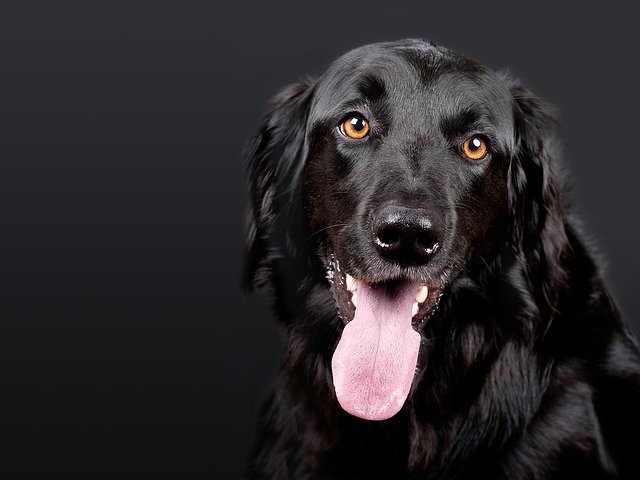
Avoid Afraid Things
Once you have found the factors that threaten your dog, you must now try to change their daily life and try your best to avoid it. For example, if your dog is afraid of other dogs now, you can take them out for a walk when there are fewer dogs nearby, or take them to a new, quieter place.
If your dog is afraid of you, you can give them space and time to help them. Don’t get close to them, don’t talk with threatening voices around them, and don’t make sudden movements. Instead, let them approach you, speak in a soft voice, and pay attention to your actions. In this way, they will understand that you are not a threat to them and that they are safe by your side. As for their walk, maybe you can let others take them out for a walk until they learn to trust you again. Be patient with this process.
Play With Your Dog
While training is important, so are the games! Having fun with your dog is crucial to building positive bonds and reducing stress. “Playing with your dog before training and keeping training sessions short and active can go a long way toward reducing fear and facilitating training,” says Dr. Wooten. .
Manage Your Emotions
Dogs can sense human emotions, so if you have any fear or anxiety, this may affect your dog. “Take time to manage your stress, maintain good self-care, and practice calming yourself through breathing or meditation as needed so that you can provide a good emotional space for your dog,” says Dr. Wooten.
Gradually Expose Your Dog To The Environment
Once you control the situation, you can start to introduce fear elements slowly and gradually. This method includes desensitization and counter conditioning. They will slowly challenge their fears and understand that fear is not a threat to them. Slowly, you will bring it back to their lives.
Desensitization refers to the gradual exposure of dogs to stimuli produced by fear. It must always be in an intensity and duration that does not cause fear, so that your dog gradually becomes a more tolerant element. If your dog is afraid of you, you must first give it space and time and don’t get close to them. Then you can start to get closer and let them see that you are not a threat. Finally, you will caress them, walk with them, and finally return to your trustworthy relationship.
Reward Them
When you approach, you must respect your dogs and their wishes. That is, if you are a little closer to them, but it makes them afraid, then you must leave. We hope they associate us with pleasant stimulation. This is called counter conditioning. When they approach you, a good way to reward them is to give them healthy food. After that, if they feel comfortable, we can also caress them.
The learning process of letting dogs get rid of fear takes time. It can last for days or even months, depending on the individual and their environment, such as age, descent, or whether they have been abused in the past.
Try A Tranquilizer
If your dog seems scarier than you can easily handle, consider purchasing over-the-counter sedative supplements and products (such as anxiety vests or music) that can help ease her worries.
Conclusion
Scare is an emotional response triggered when an animal is exposed to a threatening stimulus. This is why your dog is scared. The emotion itself is not negative, as it involves a survival mechanism that helps avoid hostile factors and enables one to adapt safely to the environment.
However, the negative impact on animals and our coexistence with them is that they fear everyday factors that do not in fact threaten their survival. When dogs are afraid of an element of their daily life, it is difficult for them to function properly in their environment. This makes them feel stressed and anxious. This is especially problematic when this element is their human partner.

